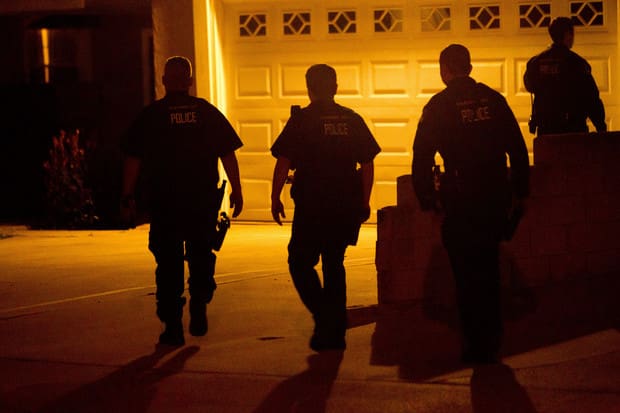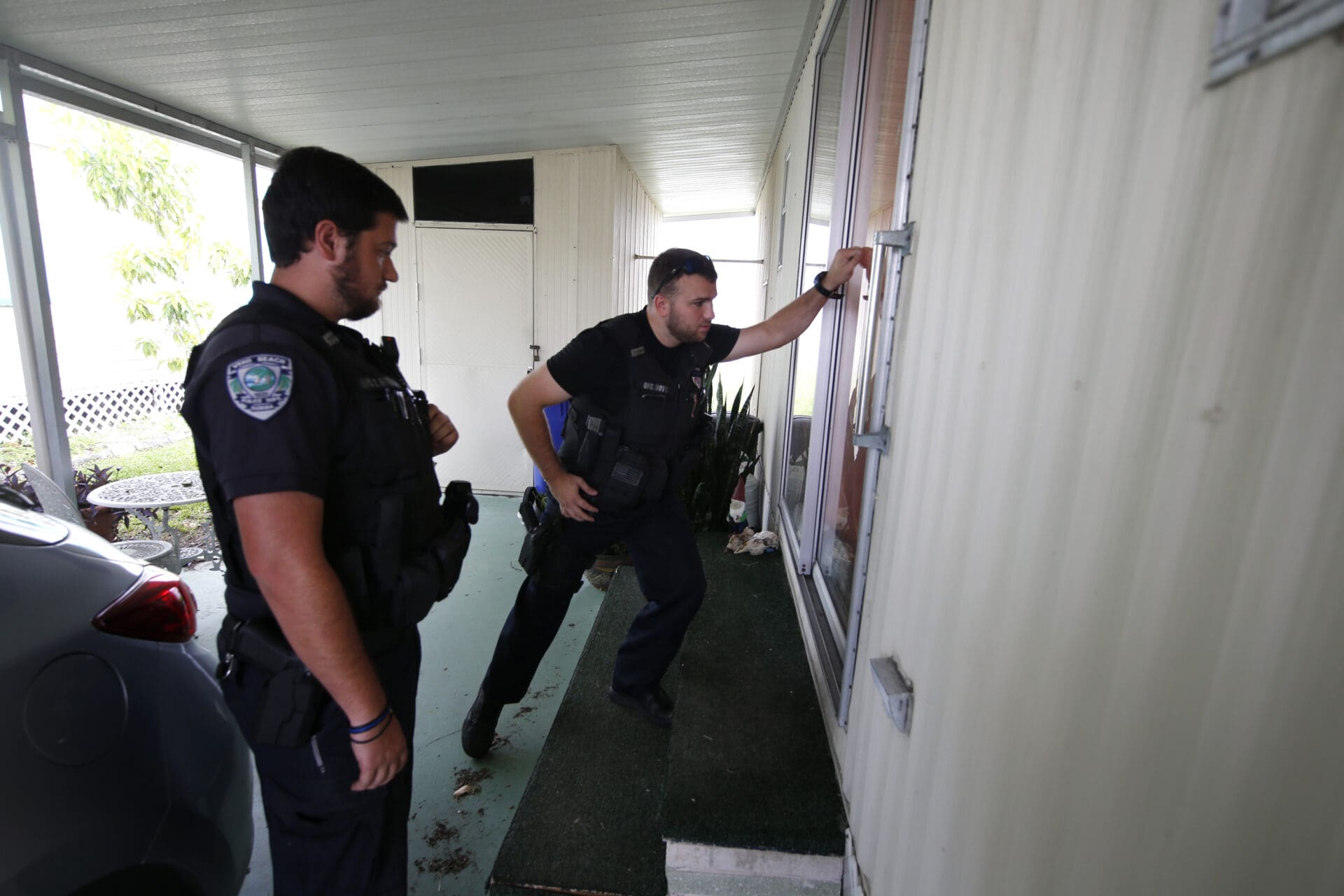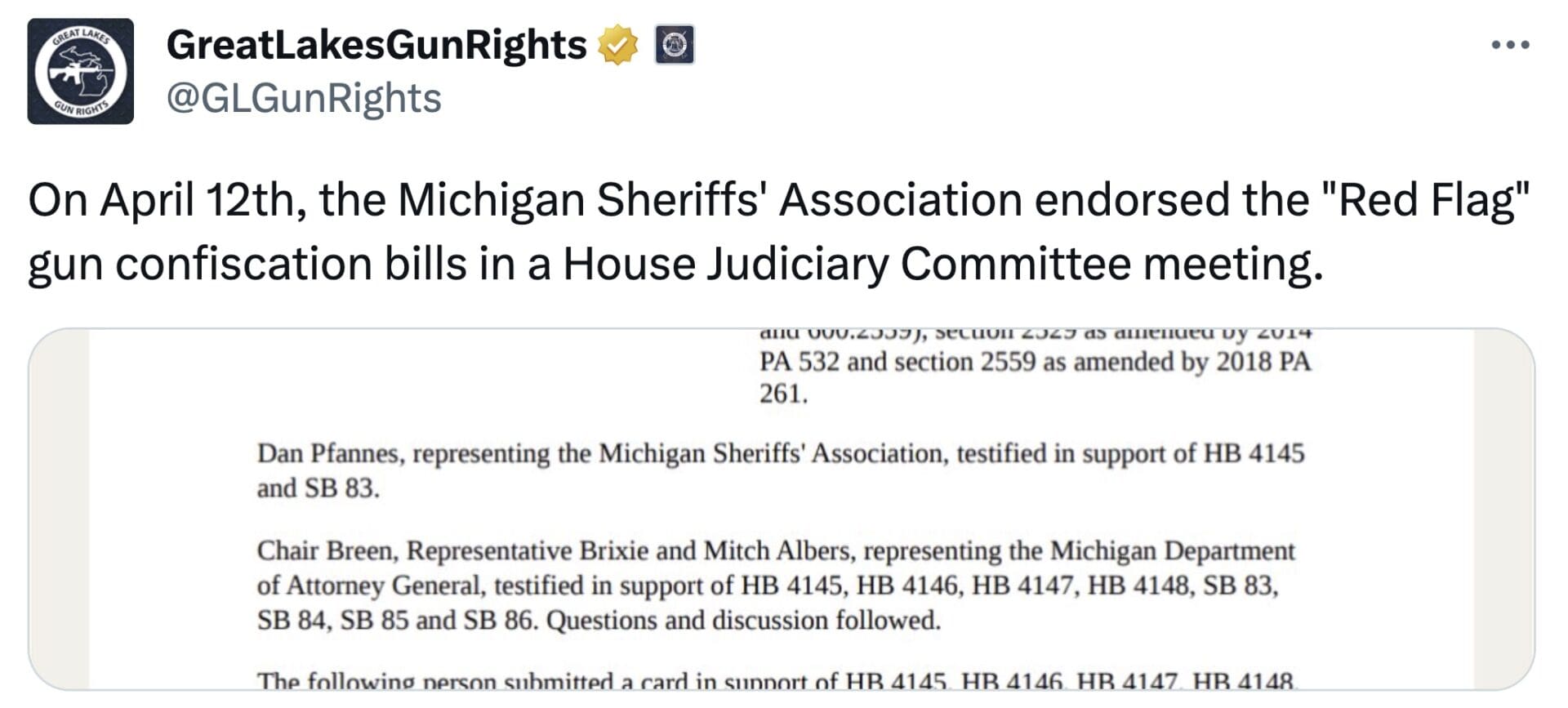Michigan Cops Not So Sure About Red Flag Confiscations Now That They May Have to Enforce Them
Michigan Governor Gretchen Whitmer signed a red flag confiscation bill into law back in May. As a Whitmer press release issued at the time proclaimed, “At the bill signing, Governor Whitmer was joined by bill sponsors, legislators, public safety advocates, and law enforcement officials.”
The bill went into effect last week and now that court-ordered gun gun-grabs have become a reality, it seems some of those law enforcement officials are having second thoughts about this whole confiscation thing now that Michigan is the 20th state to have some form of a due process-free gun-grab law on the books.
From bridgemi.com . . .
However, as the time for the law to take effect moves closer, some police chiefs and sheriffs around the state say they’re worried about the ways their agencies will have to deal with the changes.
Robert Stevenson, the executive director of the Michigan Association of Chiefs of Police in Okemos, said that while he supports the law because he does not believe people who are “not mentally balanced” should have firearms, he worries about the safety of the officers who will be taking the guns away.
Yes, well people don’t typically take it well when men in uniforms show up at their door with an order to confiscate their firearms. Particularly since the orders are almost always issued ex parte, without the targeted gun owner having an opportunity to challenge the request to disarm them in court before they’re issued.
Stevenson is envisioning a worst-case scenario.
“If you have somebody who says that they’re paranoid, and they’re dangerous, and they’ve got firearms, and somebody gets an order that tells this person you need to turn in your firearms, who’s going to go to this house with the dangerous, psychotic person that’s paranoid and try to take their guns from them?” Stevenson said.
“In what way is that going to happen?” he said.
Stevenson speculated about several potential scenarios:
What happens if the person with the order tries to hurt the officers? What if the person who was deemed suicidal becomes overwhelmed and still poses harm to themselves when their guns are being seized? What if the individual with an order has to be detained by force or even be killed, due to the threat they pose?
“I mean, you have got to imagine the optics are terrible, right?” Stevenson said. “We’re trying to save somebody in the family. We went to the police to save them, and they killed them.”
He’s worried about the optics of police shooting and killing someone they’re attempting to disarm. Fortunately, that kind of thing never happens, at least according to the bill’s primary sponsor.
However, Sen. Mallory McMorrow, D-Royal Oak, who spearheaded the legislation, said that when she studied the laws in other states, such as California and Florida, she found no instances of a gun being fired during a seizure of weapons.
Senator McMorrow apparently uses a very selective search engine. She must have missed the 2018 shooting death of Patrick Willis in Maryland. He had no idea he was the subject of a red flag confiscation order until police knocked on his door. At 5:17am.
That was an example of some very bad optics.

If only law enforcement had been included during the legislative deliberative process while Michigan’s red flag law was under consideration.
Matt Saxton, the executive director of the Michigan Sheriffs’ Association, said his organization was never asked to comment on conversations of how to enforce the new law.
Saxton said that he asked multiple times to be part of the enforcement process with the governor’s office, but was instead left in the dark, not sure what to strategize for and what to envision when it takes effect.
Maybe Saxton, the Michigan Sheriffs’ Association head honcho, hasn’t yet met one if his organizations other employees, Dan Pfannes.
Pfannes is the MSA’s Deputy Director. He testified in favor of the then-proposed red flag law before the House Judiciary Committee back in April while the bill was still under consideration. So any concerns the Michigan Sheriffs’ Association may have had about the enforcement implications of red flag confiscation orders apparently weren’t enough to keep the MSA from supporting the bill’s passage.
Saxton said he doesn’t believe that extreme risk protection laws are the best laws that could be passed, but hopes they will keep both the public and law enforcement officers safe.
So the Michigan Sheriffs’ Association got behind the bill in the legislature. But now that they may have to be the ones to actually knock on doors, court order in hand, and demand Michiganders turn over their firearms, the enforcement implications have become, well, problematic.
Saxton said enforcement strategies will be left to local municipalities instead of having a statewide standardized strategy.
Stevenson said law enforcement agencies are likely to collaborate with each other, asking neighboring departments for backup during the firearm retrieval process.
What could possibly go wrong?


